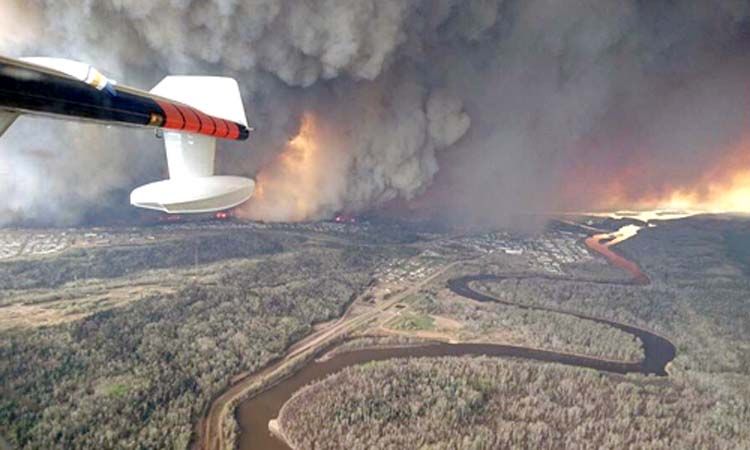

As the wildfire in Canada’s oil sands region continues to blaze, more reporters and analysts are taking a close look at the climate context behind the devastating and record-breaking fire.

Light rains and cooler temperatures have kept the fire under 400,000 acres so far, though officials warned that the fire could burn for months to come. “This is an example of what we expect—and consistent with what we expect for climate change,” said Mike Flannigan, a professor of wildland fire at the University of Alberta told CNN.
Fort McMurray wildfire – by the numbers https://t.co/qA56kndNdD pic.twitter.com/dlmNU1CdXu
— CBC News (@CBCNews) May 8, 2016
For a deeper dive:
News: Independent, Reuters, CNN, CBS News, CTV News, Globe and Mail, LA Times, USA Today, Mashable, VICE, New York Times, Weather Channel, New Scientist.
Commentary: New York Times, Kevin Thornton op-ed; CNN, John D Sutter column; The Inquirer, Will Bunch column, PRI, Carolyn Beeler analysis
For more climate change and clean energy news, you can follow Climate Nexus on Twitter and Facebook, and sign up for daily Hot News.
YOU MIGHT ALSO LIKE
People Power Over Corporate Power = Canceled Pipeline Projects
Fracking in Bakken Oilfield Largely Responsible for Global Rise in Ethane

 233k
233k  41k
41k  Subscribe
Subscribe 